(Roberta Barazza)
Horowitz Daniel, Jimmy Carter and the Energy Crisis of the 1970s. The 'Crisis of Confidence' Speech of July 15, 1979. A Brief History with Documents, Bedford S.Martin's, Boston, 2005.
The book I dealt with is Jimmy Carter and the Energy Crisis of the 1970s by Daniel Horowitz.
The main point of the book is the reaction of President Jimmy Carter to the energy crisis of the 1970s, his 'crisis of confidence speech' on July 15, 1979 and the reaction in the press by journalists, politicians, intellectuals and other personalities.
Carter's speech is preceded by a historical introduction to the problem and by opinions of several personalities about this situation and about Carter's politics.
Carter's speech is one of the most significant by an American President in the XX century. Carter deals with the problems of his time and in particular the shortage of energy, the inflation and decreasing monetary power of the citizens' earnings. The President gives a sort of religious interpretation to this situation: he speaks of moral decay, of lack of confidence, lack of hope in the future. He thinks that a solution is raising the spiritual and moral strength of the Americans.
He interprets the economical problems in a moralistic way. In the previous last days he could see in USA the worsening of the problem of lack of oil; he saw long lines of drivers waiting for gas at gas stations. Carter considers the US economical situation as a very serious problem. If US citizens had previously considered their possibilities limitless, for the first time they have the impression that they may face poverty.
The origin of the energy crisis goes back to the 50s when USA decided to lower the price of gas so that it was possible to use it in big quantity. In 1973 the problem became very serious: Saudi Arabia, one the largest producers of oil, increased its price of 350%. For the Western countries this was a terrible shock. The dependence of USA from the Middle East oil was huge and this decision almost strangled the American economy.
The reason for Saudi Arabia's decision was economical and political: it was a reaction to Nixon's support of Israel against Palestinian Arabs. With its decision Saudi Arabia defended the Palestinian fight for an independent nation.
Congressman David Stockman writes in 1978 that the decision of the Persian Gulf nations to raise the oil price in 1973 was not political, but just economical. I think this is not an acceptable idea. The political implications are more than clear and go back to Nixon’s time, while Carter inherits this problem, although he was accused of worsening the situation increasing inflation.
Carter was severely accused of being a moralist, a weak politician unable to solve political and administrative matters and of taking political and social problems for moral questions.
I have a better opinion of his politics. His speech of July 15 suggests as a possible solution for the dependence of USA from foreign energy the research of other sources of energy, like the wind power, nuclear power, coal, or others. He underlined the importance of supporting the research of new energy sources. This is what is now felt as very important in USA, in Europe and in other countries. After 30 years the problem of alternative energy is more and more urgent. Carter was right when he insisted on this choice. Soon after the July 15 speech, his appreciation among the people rose, but after the dismissal of many members of his government he was criticized by most Americans and in 1980 Ronald Reagan won the election.
His moralistic tone is less relevant, in my opinion, while his idea of the necessity of looking for other energy anticipated the present decisions of almost any government. In Europe this is a serious economical strategy. Probably less in USA: Bush has not yet signed the Tokyo agreements.
Another aspect of Carter’s politics is of value, in my opinion: his more peaceful politics than his followers. At Camp David and in other occasions he did a lot for peace agreements. And probably also his energy politics would have been more respectful of the economical independence of foreign nations. His idea that USA should try hard to be energetically independent is good and it would probably prevent USA from interfering in the decisions of other nations as they continue to do.
I think that Reagan, who seemed to despise Carter’s weakness while presenting himself as the champion of a revival of American politics and economy, could partially do this because of an arrogant foreign politics. It is true that he also contributed to the end of the cold war, but during Reagan’s time USA again controlled the world, and not always peacefully. To have a leading role, to become again a leading superpower is not a fault, but only if other nations are respected. While from 1980s again an aggressive US foreign policy began and, not by chance, especially in the Persian Gulf.
More humbly Carter wanted to solve the problem of energy, making USA more independent, and as a consequence, also respecting other nations’ independence. Reagan raised the US citizens’ enthusiasm because he was not so pessimistic and he spoke of a revival of US. But again a revival based on an aggressive foreign policy. Nowadays we still see the consequences of this politics. And again the area of special interest for US foreign policy is the Persian Gulf with all its oil. Congressman David Stockman says in 1978 that USA cannot afford to lose the control of the Persian Gulf because the oil there could fall in the hands of the Soviet Union, which, he says, would dangerously lead to the diffusion of communism. I would use Stockman’s previous words against this final idea of his: he uses a political interpretation to hide an economical reason: the importance for USA of controlling oil wells in the Persian Gulf is hidden behind a political reason. Stockman’s speech was pronounced in 1978 during the Cold War. And now? Again USA interest for that area is based on the effort to protect the western countries from the communist danger? The cold war is over but the American troops are still there. Now the reason is international terrorism, one could reply. But the economical leitmotiv of the oil is still there, in the same region.
In the 80s Afghanistan was a battlefield between Soviet Union and USA for … the cold war? Or for oil? The economical need of oil seems extremely important for USA and it links economy and politics. In Carter’s time each American used the double quantity of energy of each citizen in the richest European countries (Sweden or Germany) or in Japan. And the difference with a citizen of a poor country in Africa or Asia is incomparable.
This is why Carter’s plan seems to me less cheerful but better politics; probably it would have pushed US policy on a path of more respectful international relations while searching for new energy sources would have been less immediately rewarding for Americans but an intelligent choice because this is what is necessary now too and what will be more and more necessary in the future.
Personal blog in English. If you want to leave a comment, write to barazza.roberta@gmail.com
About Me
ruins
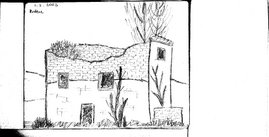
country house

novi mesto (slovenia). commercial center

warsaw. iceskating little rabbit

viterbo (italy). shop

udine. helicopter

udine. tractor

motovun (croatia)
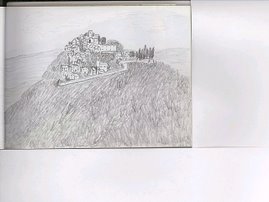
krasica (croatia)
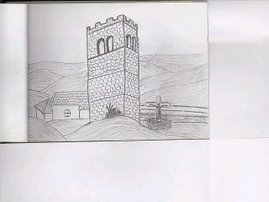
church in slovenia

slovenia
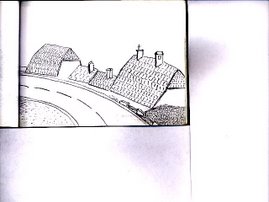
armour

rome. palm tree

dog carrying a newspaper
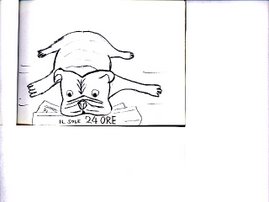
rome. campo dei fiori. giordano bruno's statue
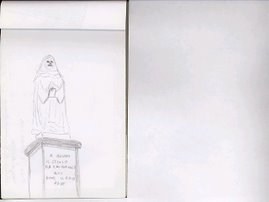
rome. Palazzo Venezia
